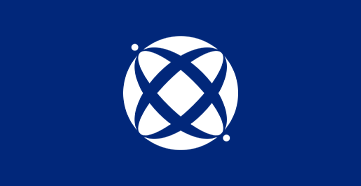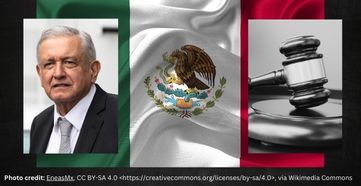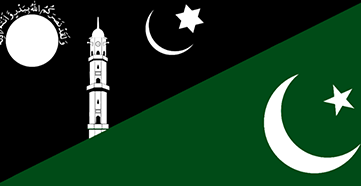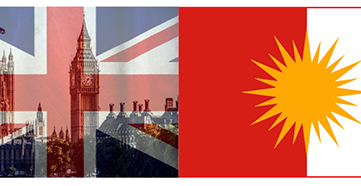|
|
Feb 17, 2023
This article will outline the development of China’s restrictions on the cross-border transfer of personal information (PI export), detailing PI export mechanisms provided by the Personal Information Protection Law. It will also explain the practical implications of the restrictions.
Jun 12, 2024
The new Foreign State Immunity Law 2023 of the People’s Republic of China came into force on 1 January 2024. This shifts the country (as well as its special administrative regions, Hong Kong and Macau) away from absolute state immunity to restrictive state immunity, bringing it more in line with the relatively prevalent practice among the international community. This article discusses the status of state immunity in public international law, analyses the new law’s provisions and examines practical challenges that will be faced by those seeking to utilise this law to enforce judgments or awards against foreign states and state entities, and the new law’s innovations that go beyond the United Nations Convention on Jurisdictional Immunities of States and Their Property of 2004 and the UK State Immunity Act 1978.
Jun 02, 2021
While the pandemic disruption has extended for far longer than initially expected, courts (after the first wave), arbitral institutions and stakeholders in commercial dispute resolution have largely continued operations, increasingly supported by innovative digital technology, flexible scheduling and flexible cost structures, among other tools.
The crisis caused by the Covid-19 pandemic has renewed interest in the need for legal and contractual mechanisms that promote the adjustment of contracts in the event of unforeseeable and abnormal circumstances.
The purpose of this article is to provide an overview of the main aspects that served as a starting point for the ‘Municipal Tax Harmonisation Agreement’ in Venezuela, presented by the Vice President of the Economic Area with governors and mayors, in compliance with the mandate given to them by the Constitutional Chamber of the Supreme Court of Justice in judgment No 0078 dated 7 July 2020.
The article explores how far South Africa has come in providing protection for LGBTQIA+ individuals. South Africa has made noteworthy progressions in LGBTQIA+ rights since 1996. From prohibiting discrimination on the basis of sexual orientation in the Constitution of the Republic of South Africa, to the numerous cases in which courts have taken steps to provide protection to same-sex life partners, and the birth of the Civil Union Act, which provides for same-sex partners to get married.
Dec 02, 2021
With the rapid growth of sustainable products and investments, the pressure for genuine corporate sustainability has intensified. Increasing investor scrutiny and accelerating climate breakdown and biodiversity loss, for example, play a part in this. In-House Perspective explores whether increased awareness owes as much, however, to reactions to the rising tide of ‘greenwash’ – when corporations make misleading claims about their green credentials.
This article examines the Future Energy Scenarios set out in the National Grid ESO’s recent report, with a particular focus on the role of digitalisation and open data in achieving net zero in the UK by 2050.
Government Decree RD-Law 463/2020, dated 14 March 2020, declared a State of Emergency to deal with the Covid-19 health crisis. It adopted a series of measures relating to limiting peoples’ movements, as well as constraining Spain’s social and economic activities.
In spring 2018, the International Bar Association's Human Rights Institute (IBAHRI) and the Anti-Torture Initiative (ATI) reached the milestone of conducting tailored programmes in all five regions of Brazil on torture prevention and implementing the Istanbul Protocol. The IBAHRI has worked in Brazil since 2010 to support the country in its commitment to eradicate torture as part of its obligations under international law
May 08, 2024
In the second part of this feature, Global Insight assesses the legal issues associated with clean energy as countries pivot to renewables in response to the climate crisis.
In the second part of this feature, Global Insight assesses the legal issues associated with clean energy as countries pivot to renewables in response to the climate crisis.
Apr 23, 2025
The IBA expresses its deepest condolences on the passing of His Holiness the Pope. His unwavering commitment to justice and the dignity of all people resonated far beyond religious boundaries and inspired those in the legal profession across the globe.
In this podcast, Nico Ooyevaar, Vice-Chair, IBA International Trade and Customs Law Committee, and partner at McMan & Co, discusses the Vision Research Europe vs Dutch Customs case with Yves Melin, Publications Officer, IBA International Trade and Customs Law Committee, and partner at Reed Smith.
In this podcast, Alvaro Castellanos Howell, Co-Chair of the IBA Poverty and Social Development Committee, talks to Hugo Beteta, Director of the Economic Commission for Latin America and the Caribbean (ECLAC). Mr Beteta discusses the impact of the Covid-19 pandemic on Latin American and Caribbean countries, the difference between poverty and inequality, and the recommendations made by ECLAC on the eradication of poverty.
In this LPRU podcast, Professor John Ruggie, the author of the UNGPs speaks to Sara Carnegie, Director of the LPRU and Maria Pia Sacco, Senior Project Lawyer, to discuss the impact of the UNGPs and future developments in the area of business and sustainability.
News release, Tuesday 12 November 2018. The International Bar Association’s Human Rights Institute (IBAHRI) has released a video on torture prevention in Brazil in which local stakeholders and international experts provide opinion about the historical background of torture in the country, and the current challenges for its prevention and prosecution. The video also illustrates how the work of the IBAHRI is contributing to strengthening Brazil’s capacity to uphold its national and international commitment
Jun 16, 2021
Ten years after the unanimous endorsement by the United Nations Human Rights Council of the UN Guiding Principles on Business and Human Rights (UNGPs), their author Professor John Ruggie (pictured) discusses the ever-changing landscape of human rights due diligence with the International Bar Association (IBA) Legal Policy & Research Unit (LPRU).
May 11, 2020
Letter to the President of Kazakhstan from IBAHRI
Dec 09, 2022
Increased economic volatility, healthcare emergencies and the rise of digital markets have all challenged the enforcement tools and approach of competition authorities globally. Successive economic shocks have required greater speed in responding and finding solutions to protect consumers. The Competition Commission of South Africa (CCSA) has used the active monitoring of critical markets, firm-level advocacy, guidance on the boundaries of acceptable conduct, accelerated investigations and consent agreements to correct behaviour rather than litigation. Examples are provided in price gouging, food markets, polymerase chain reaction (PCR) testing and airline exits. Speed is also considered important in digital markets, and given the ecosystems that characterise many digital markets, market inquiries are increasingly seen as a more effective tool to address features that adversely affect competition, along with tackling value chains in traditional markets.
Aug 09, 2022
The International Bar Association’s Human Rights Institute (IBAHRI) commends the Central African Republic (CAR) and President Faustin-Archange Touadéra (pictured) for passing Law 22.011, formally eradicating the death penalty in the country following a de facto moratorium since 1981.
Apr 21, 2023
The IBAHRI condemns the conviction and 25-year prison sentence handed down to Russian journalist and opposition activist Vladimir Kara-Murza by the Moscow City Court on 17 April 2023.
Jun 22, 2021
The South African Competition Act 1998 has from the outset reflected a clear focus on both competition law and public interest issues, the latter including provisions to enhance small business and overcome historical discrimination wrought by apartheid. Interpretation and implementation of these provisions has developed over time, culminating in the introduction of amendments to these provisions in the Competition Amendment Act 2018, which came into force in 2019. This article reviews the applicable legislative provisions and how they have been interpreted by the competition authorities in practice and through case law, and considers whether they have been effective.
May 16, 2023
The International Bar Association (IBA) expresses concern over Mexican President Andrés Manuel López Obrador’s interference with judicial independence, following egregious and repeated remarks undermining the integrity of the country's Supreme Court, most recently during a press conference on 19 April 2023.
Aug 10, 2023
The International Bar Association’s Human Rights Institute (IBAHRI) is highly concerned about the recent news that lawyers belonging to the Ahmadiyya community in Pakistan – a numeric minority community in the country – are being required to renounce their religion as a prerequisite to practice law.
Aug 03, 2023
The International Bar Association’s Human Rights Institute (IBAHRI) welcomes the UK Government’s formal recognition of the atrocities against the Yazidis as genocide.
May 16, 2023
La International Bar Association,) manifiesta su inquietud por la interferencia del presidente de México, Andrés Manuel López Obrador, con la independencia judicial, tras la profusión de graves y repetidos comentarios que afectan la integridad de la Suprema Corte de Justicia de la Nación .
Arbitration is a well-established dispute resolution method in Brazil. According to the 2019 ICC Dispute Resolution Statistics, Brazil ranks third in the top-ten list of countries with most the parties involved in ICC arbitrations. Brazil also ranked sixth overall and remained the preferred seat within Latin America and the Caribbean with 24 cases.
Apr 09, 2020
In an open letter to the President of El Salvador, Mr Nayib Bukele, the International Bar Association’s Human Rights Institute (IBAHRI) has called on him to take action to uphold the rule of law and respect fundamental human rights whilst measures are taken to prevent the spread of Covid-19.
Apr 09, 2020
The age-old story of grotesque corruption, state capture and Western complicity has repeated time and time again across Africa for generations. The latest revelations about Angola are simply another abject example of rule of law failure.
|






















